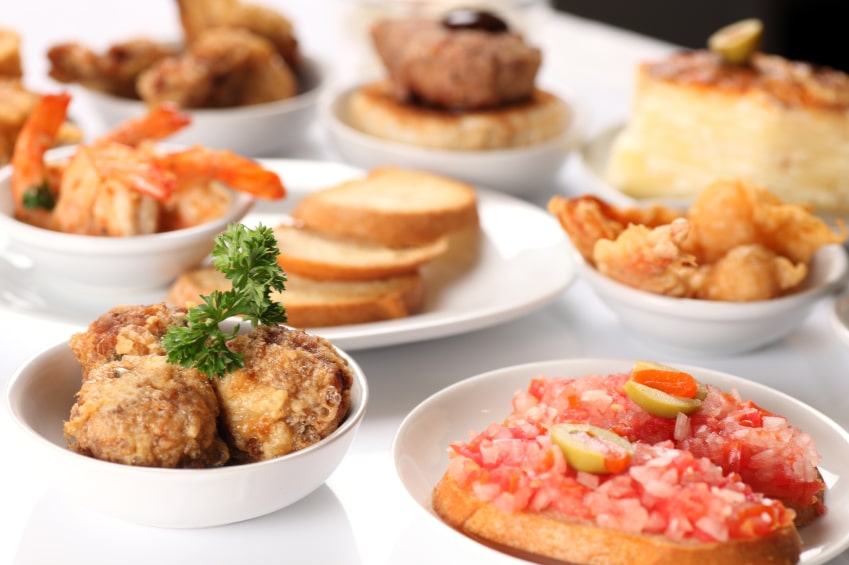A few years ago, I treated a couple to dinner at a hot new restaurant in Portsmouth, New Hampshire, USA, one that serves what they call “Modern American Tapas.” The couple had won me in a charity auction — Dine out with a Restaurant Critic! — and I wanted to make sure they had a great experience, so Moxy Restaurant it was, with its hip, small-plate dining. They didn’t “get it.” And I was surprised. While the couple was young and sophisticated, they were still used to our American version of service a la russe—the traditional appetizer, entree, and dessert sequence. They expected large portions, each person guarding their own dish as if to say, “Don’t you dare reach that fork over to try my food!” That our small dishes were served when they were ready, randomly, that we were encouraged to share and that none of the dishes had the typical protein/starch/veg combo was alien to them. I imagine their attitude has changed by now, because small-plates dining has become practically unavoidable.
Many of us know tapas — the little Spanish snacks served with wine, usually before dinner, in Spain. We also know how to share food family-style in Chinese restaurants, picking out a morsel from a common dish with chopsticks or piling it on a bed of rice. But starting even as long as five years ago, small-plate dining, sharing, and non-linear dining has taken over how we dine in many restaurants, no matter the cultural origin of the food. There’s a coup going on, which, while it likely will not supplant that three-step dining process everywhere, is at least gaining ground, advancing on our tables slowly and stealthily. It’s the small-plate, well, not revolution, but maybe evolution.
I like this new way of dining for so many reasons. Smaller plates are less expensive and I can craft my own meal based on my whim — and my budget. The random aspect of how the plates are served brings in the element of surprise, and isn’t that fun? Food comes out when it’s ready so it’s (theoretically) on my table hotter and fresher, and there’s never a problem if my dining companion’s dish is delayed. ![]()

